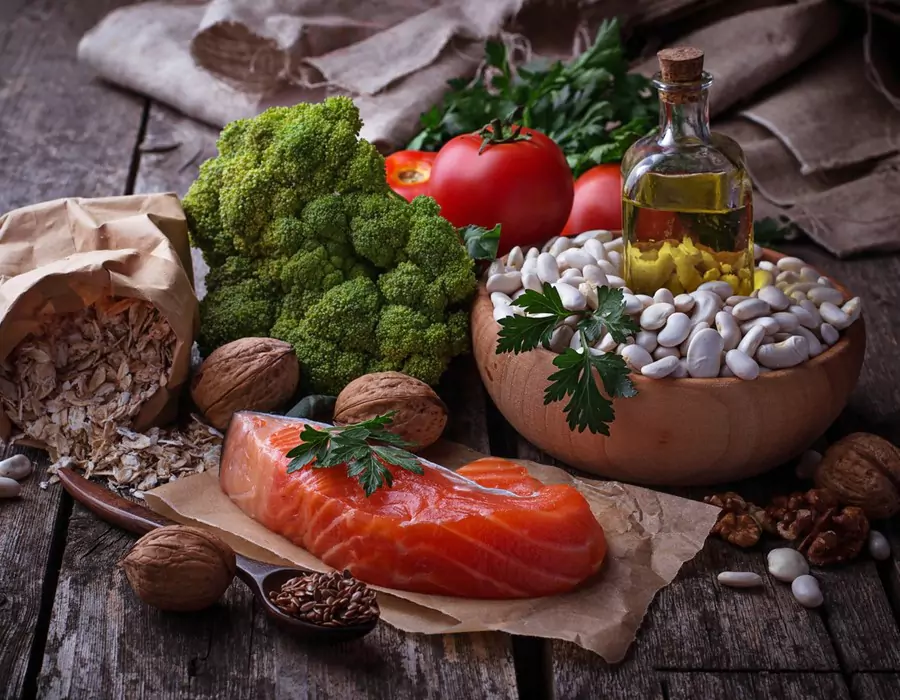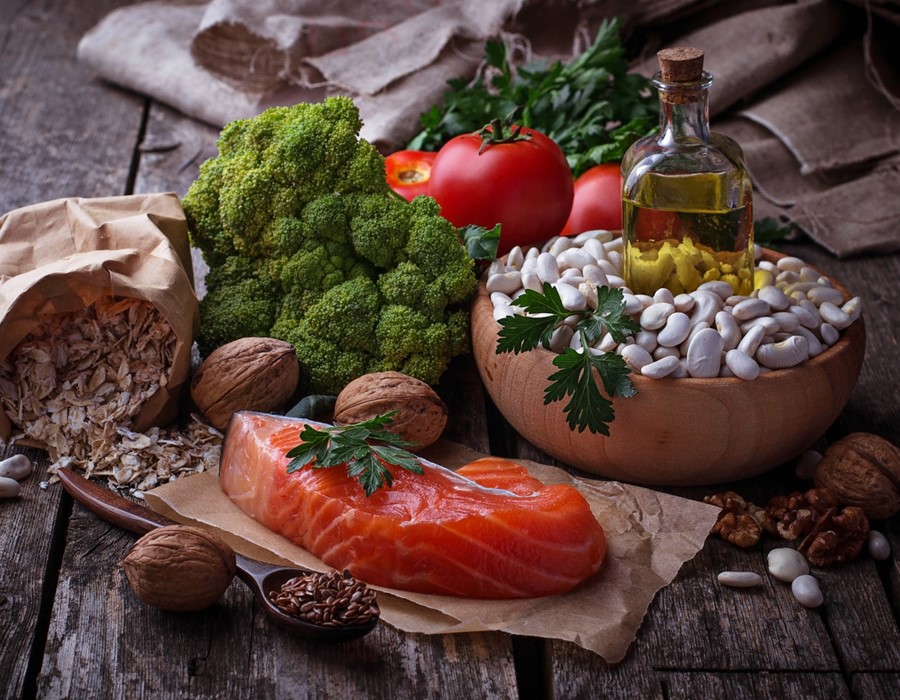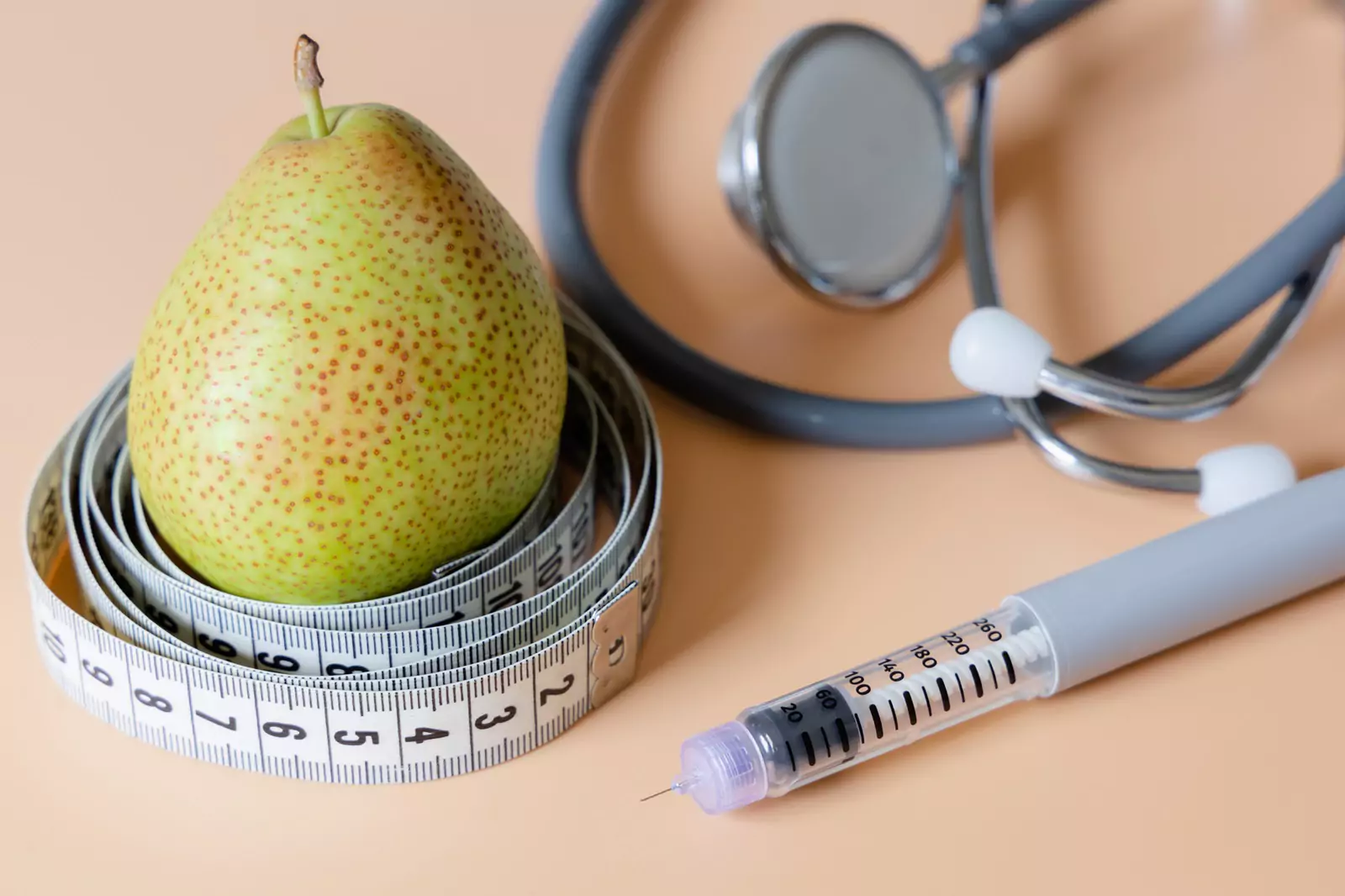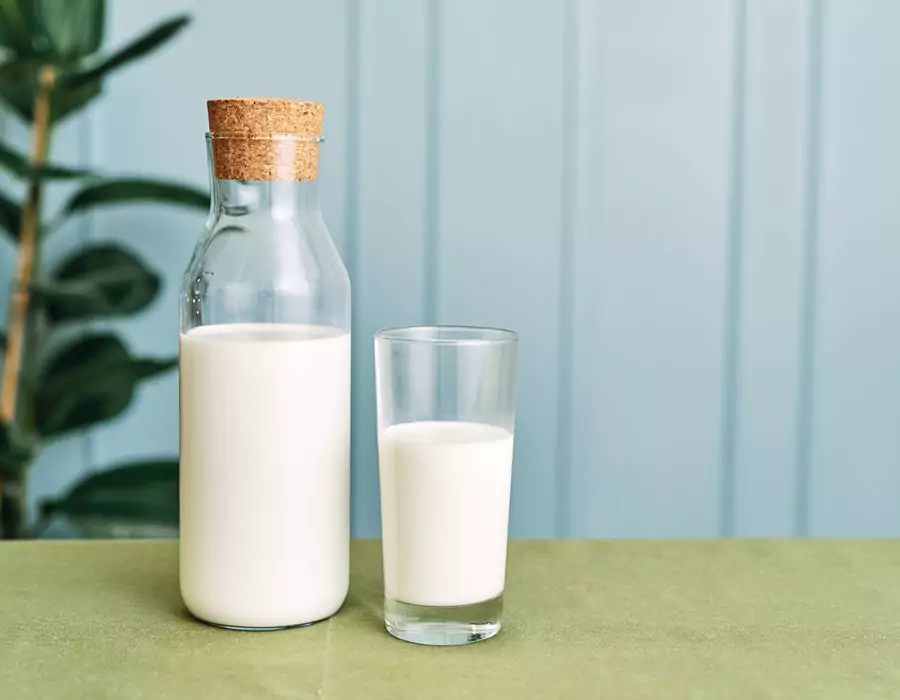
UP TO 40% OFF SITEWIDE






Best Foods to Eat For Diabetes in A Diabetic Diet!


Table of Contents
- Best Food for Diabetes Prevention and Diabetic Treatment
- What is Diabetes?
- Signs and Symptoms of Diabetes
- Health Problems Associated with Diabetes with or without Diabetic Diet
- Best Foods and Diabetic Diet for Diabetes Prevention and Treatment
- Fatty Fish
- Avocados
- Leafy Greens
- Chia Seeds
- Eggs
- Beans
- Nuts
- Greek Yogurt
- Broccoli
- Flaxseeds
- Extra Virgin Olive Oil
- Garlic
- Apple Cider Vinegar
- Frequently Asked Questions
- What Carbs Can People with Diabetes Eat?
- What Foods Can People with Diabetes Eat Freely?
- Which Fruits are Suitable for People with Diabetes?
- What Fruits Should People with Diabetes Avoid?
- Final Thoughts
Best Food for Diabetes Prevention and Diabetic Treatment
Hi, I am Dr. Ergin. I am a diabetes specialist. I have some advice and some tips for you in this article. Diabetes is a deadly illness that could strike anyone – even those with healthy lifestyles. With this, it is essential to keep our health in check at all times.
Some of the primary things that we could do to avoid developing and treating this illness are simple. It includes maintaining a healthy weight, being physically active, and having a healthy balanced diabetic diet. What about what to eat and what no to eat to prevent or treat diabetes mellitus. This article will give you a great insight!
What is Diabetes?
Diabetes is an illness wherein the blood glucose, or blood sugar, becomes abnormally high. On the contrary, the leading source of energy in the body is blood glucose. Blood glucose is sourced from the food we eat.
On the other hand, Insulin is a hormone released in the body, specifically by the pancreas that helps absorb glucose back into the cells to be utilized for energy. There may be times wherein the body does not produce enough insulin. There may also be times when the pancreas does not produce insulin at all, or the body doesn't use it properly.
Glucose then lingers in your bloodstream for a long time. Did you know that too much glucose in your blood might lead to serious health issues over time that does not show any symptoms at all until serious damage? Although Diabetes is a known incurable disease, specific efforts to remain healthy should still be observed. Diabetes affects everyone, and everyone should take active steps in improving their health.
Signs and Symptoms of Diabetes
Some of the symptoms of Diabetes regardless of being on a diabetic diet or not and, regardless of the type, are the following:
- A dry throat often resulting in an unquenchable thirst
- Frequent peeing, especially at night
- Always hungry
- Rapid weight loss without trying
- Blurry eyesight
- Often fatigue and lethargy
- Numbness and tingling on hands or feet
- Wounds heal relatively slower than usual
- Dry, scaly skin
Health Problems Associated with Diabetes with or without Diabetic Diet
As time passes by, patients with high blood glucose may also experience the following:
- Stroke;
- Kidney diseases
- Heart diseases
- Dental diseases
- Foot issues
- Eye problems
- Nerve damage
Best Foods and Diabetic Diet for Diabetes Prevention and Treatment
If you are still having a hard time identifying food to avoid Diabetes, don't worry! To help you out, we came up with a list of food for diabetes prevention. Here is the diabetes diet menu of your dreams.
Fatty Fish
It is sworn by as one of the healthiest foods available in the market by some avid fanatics. Fishes like herring, anchovies, salmon, and sardines are known to contain high levels of omega-3 fatty acids such as EPA and DHA. These omega-3 fatty acids bring a lot of health advantages to the table – especially when it comes to the heart.
Their cardio-protective properties make it perfect for people diagnosed with diabetes. If you do not like or can't find sardines, herring, etc, just stick to salmon, tuna, grouper, even tilapia without frying them! At least 2-3 times a week fish is very important. People with diabetes have an increased risk of suffering from heart diseases and stroke, so getting enough of these fats daily is exceptionally crucial.
DHA and EPA aids in protecting the cells lining the blood vessels. It also decreases the signs of inflammation and improves the function of your arteries.
People who regularly include fatty fish in their diet may have a lower chance of developing acute coronary syndromes. These include myocardial infarctions, commonly known as heart attack. Individuals who consume this particular food also have reduced chances of dying from heart disease. As such, fatty fish consumption has been linked to improved blood sugar control in many types of research. Also, protein that comes in the fish does not spike your blood sugar but eating a lot of chicken or meat actually can still spike your blood sugar compared to fish.
One study included 68 overweight and obese individuals discovered that the participants who consumed fatty fishes rich in omega-3 fatty acids revealed significantly decreased post-meal blood glucose levels when compared to the participants who consumed lean fish in their diet. In a way, fatty fishes help keep your stomach full for a longer time along with keeping your blood sugar levels at just the right level.
Avocados
If you’re unsure of fruit food for diabetes type 2 to avoid, avocados is not one of them. It is a great addition for your diabetic diet. It contains under one gram of sugar, little carbohydrates, a high fiber content, and healthy fats so that they won't spike your blood sugar levels. Avocado consumption is also linked to better overall diet quality and significantly lower body weight and BMI.
This specific element makes avocados an excellent snack for people with Diabetes, significantly since obesity raises the risk of acquiring Diabetes. Avocados may have characteristics that help prevent Diabetes. A 2019 mouse study discovered that avocatin B (AvoB), a lipid molecule found solely in avocados, improves insulin resistance by inhibiting incomplete oxidation in skeletal muscle and the pancreas.
Leafy Greens
Aside from having a high level of nutrients, green, leafy vegetables also have low calories. These leafy greens also have reduced levels of digestible starch which the body absorbs to increase blood sugar levels. Hence, consuming leafy greens would not cause a spike on your blood sugar levels. Various vitamins and minerals are also found in this particular type of vegetable.
This includes vitamin C that is found in kale and spinach, along with other green, leafy vegetables. Based on various studies, individuals diagnosed with Diabetes have reduced levels of vitamin C in the body. Hence, diabetic individuals may higher vitamin C requirements than people without Diabetes.
For individuals diagnosed with Diabetes, Vitamin C is essential because it is a potent antioxidant-rich vitamin that has hefty amounts of anti-inflammatory properties. Individuals diagnosed with Diabetes can increase their serum vitamin C levels while also decreasing the damage and inflammation of the cells in their body through increased intake of foods rich in vitamin C in their diet.
Just do not take too many vitamin C supplements as this can affect your blood sugar readings on your device. Furthermore, the antioxidants lutein and zeaxanthin that are also found in green, leafy vegetables help protect the eyes against macular degeneration and cataracts, which are common complications and sequelae of Diabetes. These antioxidants offer diabetic individuals more protection. So Leafy greens are a must for a good diabetic diet.
Chia Seeds
Chia seeds are excellent fiber sources for Diabetes. Actually, chia seed pudding with some milk and nuts is one of my favorite dishes for breakfast. They're high in fiber but low indigestible carbohydrates. Fiber accounts for 11 of the 12 grams of carbs in a 28-gram (1-ounce) dosage of chia seeds, so they don't elevate blood sugar levels.
Chia seeds are a fantastic snack. They are rich in fiber and low in carbohydrates that are easily absorbed. In a 28-gram serving of chia seeds, 11 of the 12 grams of carbs are fiber, which doesn't elevate blood sugar. Chia seed is food for diabetes recipes.
It is famous for being a multitasking ingredient that adds nutrition and crunch to any dish! Chia seeds include viscous fiber that can reduce blood sugar levels by decreasing the rate at which food passes through your intestines and is absorbed. Fiber suppresses hunger and makes you feel full, so chia seeds may help you maintain a healthy weight.
Chia seeds may also aid in the control of blood sugar levels in people with Diabetes. Chia seed-eating boosts weight loss and helps maintain reasonable glycemic control, according to a study including 77 persons with obesity or overweight and Type 2 Diabetes. Chia seeds have also been demonstrated to lower blood pressure and inflammatory indicators. Make sure you include chia seeds in your diabetic diet.
Eggs
Eggs provide numerous health benefits. They are famous for their light yet fulfilling properties. Consuming eggs regularly have greater chances of reducing your risk of developing heart diseases in various ways.
Eggs are also known for reducing inflammation, improving insulin sensitivity, raising high-density lipoprotein (HDL), otherwise known as the good cholesterol, and changing the shape and size of the low-density lipoprotein (LDL), also known as the bad cholesterol.
Based on a study conducted in 2019, including high-fat and low-carb eggs in one’s diet can help individuals with Diabetes ensure that their blood sugar levels would not spike all-throughout the day. One of the most recent studies revealed that incorporating 6 to 12 eggs every week in the diet regimen of individuals did not increase the risk of the development of heart diseases in individuals with Diabetes.
In addition to that, various studies have also suggested that eating eggs may significantly lower the risk of stroke. Eggs also have high antioxidants properties that are beneficial for everyone’s health. It contains lutein and zeaxanthin which are known to protect against eye disorders. So add on eggs to your diabetic diet list.
Ensure that you consume the whole egg when eating! More minerals and nutrients can be found in the yolk of the egg when compared to the egg white, so be sure to eat the entire egg. If you have high LDL and if egg yolk increases your LDL too much try to reduce yolk intake. Some people are more sensitive to yolk's LDL increasing effect than others.
Beans
Beans are diabetic-friendly, affordable, nutrient-rich, and highly beneficial. Aside from B vitamins, essential minerals that include magnesium, calcium, potassium, and especially fiber are also found in several kinds of beans. This specific type of food is known to have a low glycemic index, which is one of the most important factors in diabetic management.
This may also help in the prevention of Diabetes itself. A study involving approximately 3,000 patients with a known increased risk for developing heart diseases revealed that individuals who consumed a greater amount of beans had a decreased risk of up to 35% of being diagnosed with type 2 diabetes. Beans are one of the most fundamental items in your diabetic diet list.
Nuts
Nuts are delicious, but they are also healthy. More often than not, nuts are rich in fiber and low in net carbohydrates, though this greatly differs in the variety of nuts an individual consumes. Regular eating of various nuts has been demonstrated to lower the inflammation in the cells and decrease blood sugar levels, along with HbA1c which is a measurement for long-term blood sugar management, and LDL (bad) cholesterol levels in studies.
Nuts may also assist people with Diabetes improve their cardiovascular health. A 2019 study of nearly 16,000 Type 2 Diabetes patients revealed that eating tree nuts like walnuts, almonds, hazelnuts, and pistachios reduced their heart disease and death risk. Nuts are also known for improving blood glucose levels.
According to a survey, walnut oil daily enhanced blood glucose levels in people with type 2 diabetes. This study is significant because persons with type 2 diabetes frequently have high insulin levels, which have been associated with obesity. Also Nuts is going to be a fun part of your diabetic diet. They are great snacks.
Tip: Just try to eat nuts unsalted and not roasted if you want to get the full benefits!
Greek Yogurt
Greek yogurt is one of the best food for diabetes control. Several studies suggest that intake of several dairies, including Greek yogurt, may significantly aid in the management of individuals with diabetes. Greek yogurt also lowers the risk of developing certain conditions, such as heart diseases, most probably because of the probiotics it contains.
Consumption of Greek yogurt may also be associated with reduced levels of blood glucose in the body and reduced insulin resistance levels in various scientific studies. Yogurt also reduced the risk of developing diabetes, especially as one age.
One long-term research that involved more than 100,00 participants revealed that daily intake of yogurt was associated with the 18% reduction in the risk of acquiring the said disease. Greek yogurt also aids in weight loss that also improves the management of diabetes.
Aside from these benefits, studies show that dairy products like yogurt also improve the body composition of individuals diagnosed with diabetes. Yogurt also contains high levels of protein and calcium, along with conjugated linolic acid (CLA) which is a kind of fat that helps diabetic individuals shed weight.
LCA acts in the body by suppressing the appetite that leaves you avoiding intake of large and unhealthy meals. Additionally, with only 6-8 grams of carbohydrate every serving, it also helps an individual lose excess weight. Hunger is also curbed because of the high protein it contains that makes a person feel fuller while also lowering calorie consumption. Yogurt is great if you want to keep your diabetic diet high in probiotics.
Tip: Try to avoid greek yogurts that come with artificial sweeteners. Try to eat full fat or 5% fat yogurt for better taste and longer-term fullness unless you are on a strict diet to lose weight.
Broccoli
Broccoli is known as one of the healthiest vegetables available in the market and in your diabetic diet. Every half cup of cooked broccoli contains about 27 calories, with digestible carbohydrates amounting to only 3 grams.
Aside from the low calorie, it contains, broccoli is also rich in magnesium and vitamin C. Hence, it is known as one of the best foods that prevent and treat diabetes. Broccoli significantly helps in managing blood sugar levels. Based on one study, the intake of this nutrient-rich vegetable resulted in a decrease in blood sugar levels of up to 10% among individuals diagnosed with diabetes.
The molecule sulforaphane found in vegetables like sprouts and broccoli is thought to be responsible for the decrease in blood sugar levels among various studies. Aside from this molecule, broccoli also contains the antioxidants lutein and zeaxanthin. These known substances help protect the eyes from the microvascular complications of diabetes.
Flaxseeds
Flaxseeds are a nutrient-dense food. Flaxseeds often called common flax or linseeds, are abundant in heart-healthy omega-3 fats, fiber, and other unique plant chemicals. Lignans make up a chunk of the insoluble fiber they contain, which may help lower the risk of developing heart diseases and enhance blood glucose control.
A study of 25 randomized clinical trials discovered a link between whole flaxseed consumption and lower blood glucose levels. Not only good for your diabetic diet but also flaxseeds may also aid in the reduction of blood pressure. According to research, a daily dose of flaxseed powder reduced blood pressure in those with pre-Diabetes, but it did not affect glycemic control or insulin resistance.
More research into how flaxseed can help prevent or manage diabetes is needed. Flaxseed, but on the other hand, is good for your heart and health. Another study found that flaxseed may help lower your risk of stroke and minimize the amount of blood clot-prevention medicine you need.
Flaxseeds are also high in viscous fiber. This viscous fiber aids with gut health, insulin sensitivity, and satiety. Because whole flax seeds are indigestible, buy ground seeds or grind them yourself. Flaxseeds should also be kept tightly covered in the refrigerator to prevent them from becoming rancid.
Extra Virgin Olive Oil
Extra-virgin olive oil offers a lot of advantages and health benefits not only for diabetic patients but also for individuals at risk of heart diseases. It contains the monounsaturated fatty acid known as oleic acid that improves the glycemic control of individuals with diabetes.
It also reduces the fasting and postprandial triglyceride levels in the body. Additionally, it has antioxidant properties that combats damage caused by free radicals. Since diabetic individuals with increased triglyceride levels encounter a lot of difficulties in managing their blood glucose levels, intake of extra virgin olive oil is essential.
Oleic acid that is found in this specific olive oil may stimulate GLP-1, a hormone that promotes the feeling of fullness and satiety. Hence, it helps diabetic individuals feel fuller and prevent them from intake of unhealthy foods. Extra virgin olive oil is also the only known form of fat that helps decrease the risk of developing heart diseases.
This is based on a systematic review that involved 32 studies of different types of fat. Lastly, this type of olive oil is also rich in antioxidants, specifically polyphenols. This substance helps lessen the inflammation in the cells and protects the linings of the blood vessels.
It also prevents the oxidation of LDL cholesterol, along with lowering the blood pressure of individuals. So if you are building a diabetic diet make sure you put olive oil in your shopping basket.
Garlic
Despite its small size and low-calorie count, garlic is one of the most nutritious vegetables for Diabetes. One garlic clove contains four calories and:
- Vitamin C – 1% of daily value;
- Vitamin B6 – 2% of Daily value;
- Manganese – 2% of daily value;
- Selenium – 1% of daily value;
- Fiber – 0.06 grams
Garlic helps with blood glucose management and cholesterol regulation. Although many studies show garlic is a proven good alternative for patients with Diabetes, the meta-analysis described serving sizes ranging from 0.5 to 1.5 grams.
Garlic also lowers blood pressure and manages cholesterol levels in studies. A study that involves individuals with uncontrolled high blood pressure consumed aged garlic for 12 weeks revealed a decrease in their blood pressure by around 10 points.
Apple Cider Vinegar
Apple Cider Vinegar is a multipurpose ingredient. It is mainly obtained from apples. However, the sugar found in this particular fruit is turned into acetic acid through the process of fermentation. It results in a product with less than 1 gram of carbohydrates per tablespoon.
This offers various advantageous benefits to the body. According to a meta-analysis of trials that involve around 300 participants diagnosed with diabetes, individuals who consume apple cider vinegar are revealed to have lower fasting blood sugar levels and HbA1c.
As a result, it is always found in the best foods for patients with Type 2 Diabetes food list. When apple cider vinegar is consumed along with carbohydrate-rich foods, it reduces the response of the blood glucose in the body by up to 20%. And because of the advantageous health benefits it offers, it may also be used as an antibacterial and antioxidant. Does that make apple cider vinegar a must to include in your diabetic diet?
Tip: Use apple cider vinegar in your salads every day. Avoid directly drinking it as it causes enamel damage.
Frequently Asked Questions
It is up to you to manage your Diabetes daily. Making choices about what you eat is a big part of it. Everyone understands that vegetables are better for you than cookies. Within each food group, however, there are many better options. Best choices are frequently lower in trans fat, saturated fat, added sugar, and sodium.
What Carbs Can People with Diabetes Eat?
The best carby foods if you have to have carbs for diabetes control includes:
- Whole grains – oatmeal, brown rice, quinoa, amaranth, millet, and the like in small quantities.
- Meals made with whole grains and little to no sugar and in small quantities.
What Foods Can People with Diabetes Eat Freely?
The best food for Diabetes Mellitus:
- Fatty fish
- Avocados
- Leafy greens
- Chia seeds
- Eggs
- Beans
- Nuts
- Greek yogurt
- Broccoli
- flaxseeds
- Extra virgin olive oil
- Garlic
- Apple cider vinegar
Which Fruits are Suitable for People with Diabetes?
Carbohydrates, vitamins, minerals, and fiber are all found in them. The majority of them are naturally fat-free and sodium-free. However, they contain more carbohydrates than veggies. The best fruit food list for Diabetes and high blood pressure:
- Blueberries, strawberries, blackberries.
- Apples
- Oranges
- Grapes
- Grapefruits
- Pear
- Peaches
- Plums
Other fresh, or frozen fruits are also excellent choices if they do not contain added sugar. Avoid canned fruits as they often have added sugars!
What Fruits Should People with Diabetes Avoid?
If you are curious to know foods to Avoid Diabetes, we got you covered. If the fruit has a glycemic index score ranging between 70 and 100, it is best to avoid it. Some fruits in this range include:
- Overly ripe bananas
- Dried dates or any dried fruits except dried apricots
- Watermelons in large quantities
- Pineapples in large quantities
- Grapes in large quantities
- Mangos in large quantities
Final Thoughts
Diabetes is a complex disease that may affect every individual in the world today. However, it can easily be prevented and treated successfully by having the proper discipline. Let us all train ourselves in sticking with the proper diet and exercise regimen to combat this disease.
By eating of the foods included in this article, you are already one step away from acquiring this life-troubling disorder or closer to to treating your diabetes and controlling your blood sugar better. Ahmet Ergin, MD Endocrinologist
Written By Dr. Ahmet Ergin
465 total articles
Meet Dr. Ahmet Ergin, a highly skilled and dedicated endocrinologist with a passion for diabetes care. Dr. Ergin earned his medical degree with honors from Marmara University in Istanbul. He completed internal medicine residency and endocrinology fellowship at Cleveland Clinic. Dr. Ergin is board-certified in Internal Medicine, Endocrinology, Diabetes, and Metabolism due to his vast medical expertise. He's a certified diabetes educator, author of “The Ultimate Diabetes Book,” and founder of “the SugarMD YouTube channel.” Dr. Ergin offers exceptional diabetes care to his patients in Port Saint Lucie, FL, helping them manage effectively. For a closer look into his insights and experiences, connect with Dr. Ahmet Ergin on LinkedIn, Instagram, and YouTube.”
Disclaimer: These statements have not been evaluated by the Food and Drug Administration. Information on this website isn't intended to treat, cure or prevent any disease. Discuss with your doctor and do not self-treat.
Products















